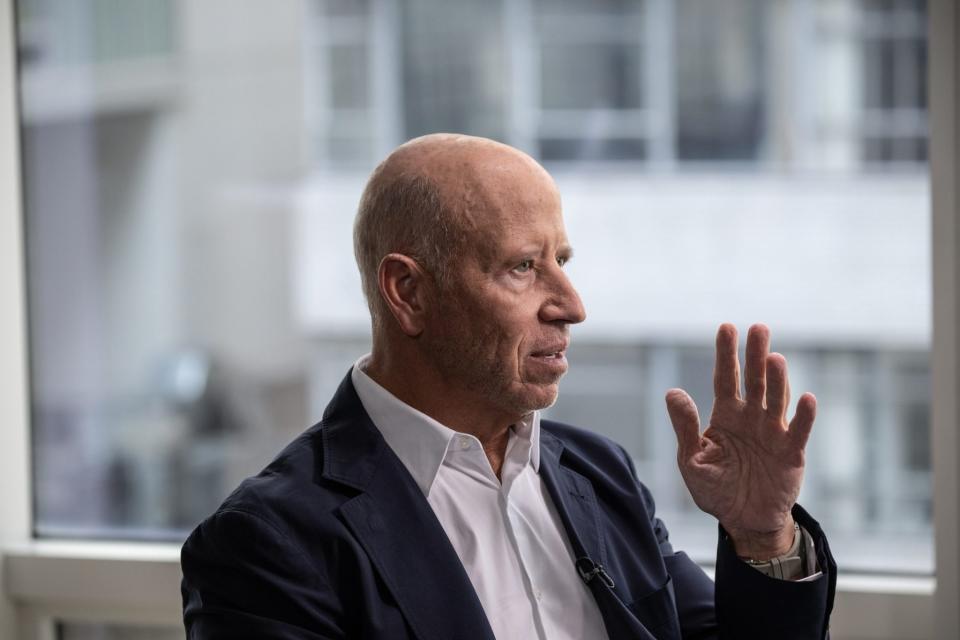‘The office market has an existential crisis right now’: Billionaire Barry Sternlicht joins chorus warning of $1 trillion correction, but insists ‘nobody knows exactly where it all is’

Starwood Capital Group’s chief executive and chairman previously warned of a “hurricane over real estate.” And the billionaire behind the real estate investment firm, Barry Sternlicht, hasn’t changed his tune.
At iConnections’ Global Alts conference in Miami Beach, according to Bloomberg, Sternlicht said, “the office market has an existential crisis right now.” This isn’t new information by any means. Several chief executives, economists, and academics have sounded the alarm for the office sector, with most stressing that the one thing that separates it from all other commercial real estate woes is demand.
It was a rough year for the sector, and higher interest rates were mostly to blame. After an era of cheap money, the Fed’s abrupt interest-rate-hiking regime created a bit of a shock for the debt-dependent industry. But the office sector faced more than high interest rates, since with the pandemic, a newfound ability to work from home emerged. Businesses, also grappling with the toll of higher rates, cut back by reducing physical office space, even with the shift toward hybrid work rather than remote work. To quote another real estate billionaire, “it’ll be years before we really understand the damage the pandemic did to the world,” Ross Perot Jr. previously told Fortune, adding that for one, “it broke the habit patterns of millions of people that used to go to work every day in a real office.”
Sternlicht said he sees more than $1 trillion of losses for the office space, calling it “one asset class that never recovered” from the pandemic, Bloomberg reported. According to the outlet, Sternlicht estimated the worth of the entire class at $.18 trillion, down from $3 trillion, saying, there’s “$1.2 trillion of losses spread somewhere, and nobody knows exactly where it all is.”
It’s not clear if he elaborated further, but he did rip the Federal Reserve, arguing that the central bank’s policies created a “serious mess in capital markets and real estate and anything that’s yield related.” It’s by no means his first time digging into the Fed, which he called “Jay Powell and his merry band of lunatics” in a prior interview with Fortune. On a separate occasion, Sternlicht called the Fed’s interest rate hikes “self-inflicted suicide.” Clearly, he’s not a fan, likely because of the potential effects Powell’s interest rate increases have had on his own company.
“We’re in the business of getting loans,” Sternlicht said, according to Bloomberg. And banks “don’t show up, they’re not even playing.”
The relationship between commercial real estate and banks worsened in the aftermath of the bank failures early last year—stricter lending became a norm, even though credit was already tight to begin with. “That’s what happens when you head into softer economic conditions, never mind one where there’s friction in the banking system,” Rich Hill, the head of real estate strategy at Cohen & Steers, told Fortune at the time.
Sternlicht is not the only one predicting a wipeout.
Cantor Fitzgerald’s billionaire chairman and chief executive, Howard Lutnick, earlier this month predicted between $700 billion to $1 trillion of commercial real estate defaults over the next two years—that is, unless interest rates fall quickly, which he said was unlikely. “I think it’s going to be a very, very ugly market in owning real estate over the next 18 months, two years,” Lutnick said.
For its part, Capital Economics estimated a $590 billion loss in commercial real estate property values last year, another $480 billion wipeout this year, and another $120 billion loss in 2025, for a 24% peak-to-trough value decline. For office alone, the research firm expects values to fall more than 40% peak-to-trough by the end of 2025, with no recovery even by 2040. Clearly, there will be more distress ahead, particularly driven by maturities, or debt coming due when refinancing isn’t cheap or easy.
Still, according to Moody’s Analytics’ head of commercial real estate analysis, Kevin Fagan, “the story of office isn’t a story of mass obsolescence, it’s more of a ‘it’s going to take time for it to normalize and discover what it is in the future.’”
This story was originally featured on Fortune.com

 Yahoo Finance
Yahoo Finance 